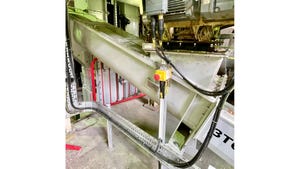December 6, 2011
Cardinal Scale Manufacturing Co.’s product line of U.S.-made weight indicators was recently approved by Electronic Testing Labs (ETL) as meeting product compliance (electrical, gas, and other safety standards) in North America. ETL approval certifies that the product has demonstrated the minimum requirements of a widely accepted consensus of product safety standards as determined through independent testing of a Nationally Recognized Testing Laboratory (NTRL), the manufacturing site has been audited, and, as part of that testing regimen, the product manufacturer has agreed to periodic follow-up inspections to verify continued compliance. NTRL is a testing lab that Occupational Safety and Health Administration (OSHA) has recognized as possessing the ability to perform product safety testing and certification.
The following Cardinal Scale indicator models have been ETL approved: 180, 200, 204, 205, 210, 215, 225, 750, 758C, and 825. These indicators have been verified by a national organization that specializes in safety standards and, in turn, indicates an outstanding level of high quality in Cardinal Scale products.
Authorities Having Jurisdiction (AHJs) in the U.S. and Canada, as well as retailers, accept the ETL listed mark as proof of product safety. Cardinal Scale chose to undergo the rigorous ETL approval process because it offers a tremendous competitive advantage in the marketplace. It is one of many quality seals of approval recognizing the standard of excellence that is Cardinal Scale’s hallmark.
Electronic Testing Labs has been around for over 100 years, originally being founded by Thomas Edison in 1896. Today, the company is owned by Intertek Testing Services, but still applies the well-established ETL listed mark as proof of product compliance. Specifically, this lab deals with approving products in the United States and Canada that work with electronics, overseeing all aspects of safety measure regarding their components and operation.
For more information visit Cardinal Scale.
You May Also Like


